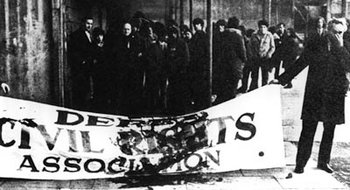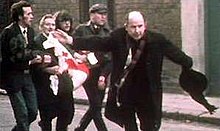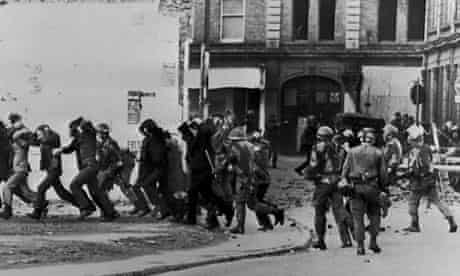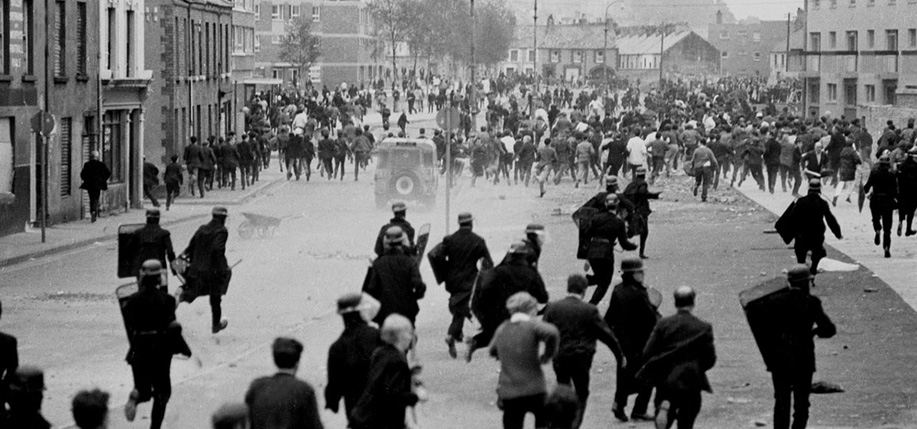Remembering Bloody Sunday: Rare actual footage (30 Jan. 1972, Derry, Northern Ireland)
- Protest2020
- Feb 3, 2021
- 3 min read
Updated: Nov 19, 2021
Thanks to Stratos Moraitis for sharing.
January 29 at 4:27 PM ·
ProtestBlog.org Bloody Sunday: Σπάνιο ιστορικό οπτικοαουστκό ντοκουμέντο (30 Ιανουαρίου) https://www.youtube.com/watch?v=0izN111lXUg Bloody Sunday in Derry, Northern Ireland: On the 30th January 1972 British soldiers opened fire on protesters in the city of Derry, north-west Ireland. 28 unarmed protesters were shot, 13 died immediately or within hours, one more died just over four months later. Many of the victims were shot while fleeing from the soldiers and some were shot while trying to help the wounded. Other protesters were injured by rubber bullets or batons, and two were run down by army vehicles. Derry was in the section of Ireland claimed by the British state and the shootings happened in the context of the suppression of a growing civil rights movement.
ProtestBlog.org: "What became known as Bloody Sunday then has often been, and frequently still is believed to have been, an act of undisciplined slaughter perpetrated by blood-crazed Paras. This assumption though is wrong and to a large extent lets the British establishment off the hook. By assuming that soldiers "ran amok" it puts the blame on individual soldiers who pulled triggers and killed people. Bloody Sunday was a planned, calculated response to a demand for civil rights, designed to terrify organised protestors away from protesting. It fits easily into the catalogue of British involvement in Ireland as a quite logical and even natural event" (Fred Holroyd, ex-British Army Intelligence Officer.)
In August 1971 internment without trial was introduced. On the tenth, Operation Demetrius was launched. 342 people were arrested and nine people killed by troops. In this period experiments in sensory deprivation torture were carried out on some people arrested, with the aim of psychologically breaking them. With hoods placed over their heads, they were made to stand spread-eagled against a wall balanced on their fingertips. They were kept like this for four or five days, being bombarded with white noise and beaten if they moved, denied food, drink, sleep, or access to toilets. At intervals they were taken up in a helicopter and thrown out while just a few feet off the ground having been told that they were hundreds of feet up (they were still wearing their hoods).
In protest at internment, a rent and rates strike was organised which attracted the support of some 40,000 households. By October this had escalated to non-payment of TV, radio, car licences, road tax, ground rent, electricity, gas and hire purchase (this a good idea that we should imitate- after all why stop at not paying the poll tax?). In response to this crisis the Payments of Debt Act was passed, allowing debts to be deducted directly from benefits. The introduction of internment was accompanied by a 12-month ban on all demonstrations. Despite this, on January 30 1972 tens of thousands of people attended a demonstration in Derry. The state's response to this act of defiance was a cold-blooded massacre. CS Gas and water cannon had already been used by the time the Parachute Regiment came onto the streets and opened fire on the crowd. The Army claimed that they were returning fire, but forensic tests on the 14 people killed showed that none of them had had contact with weapons and no weapons were found anywhere near the bodies. (Extract from an article in Wildcat magazine)
The findings of the Saville Report, an inquiry into the events of that day held by british authorities concluded that:
- No warning had been given to any civilians before the soldiers opened fire
- None of the soldiers fired in response to attacks by petrol bombers or stone throwers
- Some of those killed or injured were clearly fleeing or going to help those injured or dying
- None of the casualties was posing a threat or doing anything that would justify their shooting
- Many of the soldiers lied about their actions
- The events of Bloody Sunday were not premeditated












































Comments